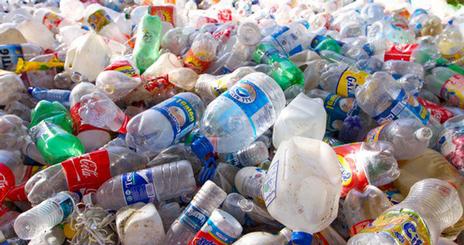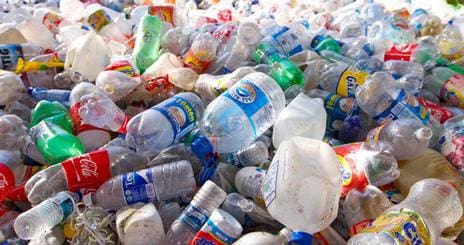Plastic waste becomes currency in developing countries
 Jill Ettinger writes Plastic waste is building up all around the world. And now, in some countries, it’s being used as a currency of sorts.
Jill Ettinger writes Plastic waste is building up all around the world. And now, in some countries, it’s being used as a currency of sorts.
It’s a pretty brilliant concept: offer people useful services and products for plastic waste they collect from the streets and beaches in the developing world and bring into regional “plastic banks.”
The idea is the brainchild of Vancouver entrepreneur David Katz who created the organization Plastic Bank.
“If we can reveal the value in the things around us, then we can give people the opportunity to make a better life with that,” he told Fast Company.
Here’s how it’s going to work in Peru, where the first Plastic Bank is set to open this spring: Plastic waste “pickers” will be able to visit the Plastic Bank and trade in their collection of mixed plastics for food, shoes and other necessities. And, according to Fast Company, they can even use the bank’s 3D printing facilities to make items they may need. “Perhaps they’re working with waste from a gas station and the mechanics need components they can print on site. It gives them an opportunity to take the waste out of the environment and make something worth $5, $10, or $20,” Katz says.
Other countries are being targeted for Plastic Banks as well, including the Philippines, Colombia and Indonesia, where plastic is a problem, and an opportunity.
According to Katz, Plastic Banks will also be providing on-site training to the waste collectors so they can expand their skill sets and perhaps even start their own recycling facilities to boost their revenue and take some of the ick factor out of collecting waste.
There is so much plastic floating in our oceans right now that it’s the equivalent of thousands of giant blue whales, the largest creatures on the planet. And it’s not doing the oceanic ecosystems any good. So even as minuscule as collecting a trash bag’s worth of plastic bottles from a beach may seem, it’s no small effort. In fact, it may be way more important than many of us realize.
So, what happens with all the plastic delivered to the banks?
A “major corporation” is going to take the collected plastic waste and turn it into new products, Katz told Fast Company. “Knowing that the plastic came from a waterway and that it helps people out of poverty through its collection and reuse—that’s a strong story.”
Find Jill on Twitter @jillettinger
Tags: Environment







0 Comments